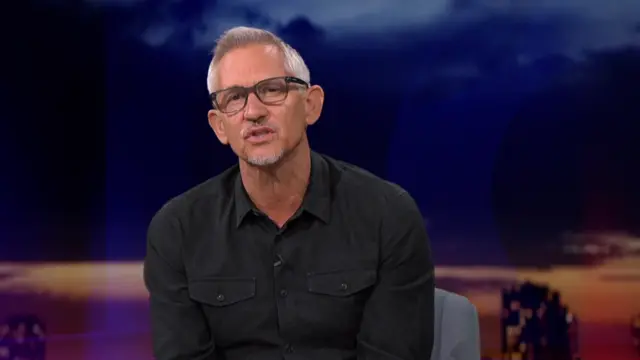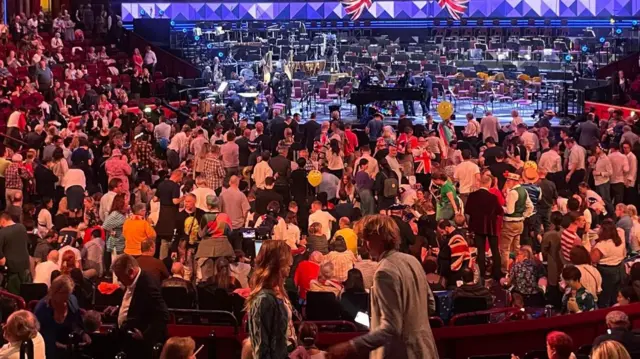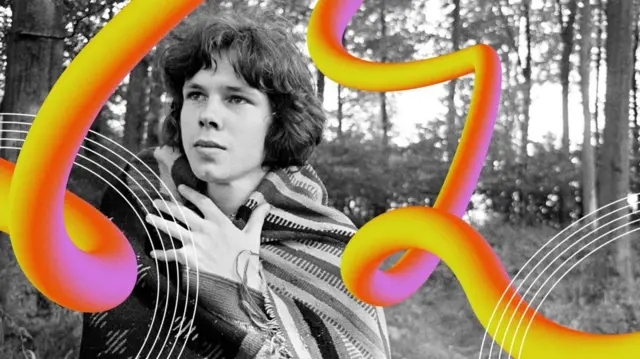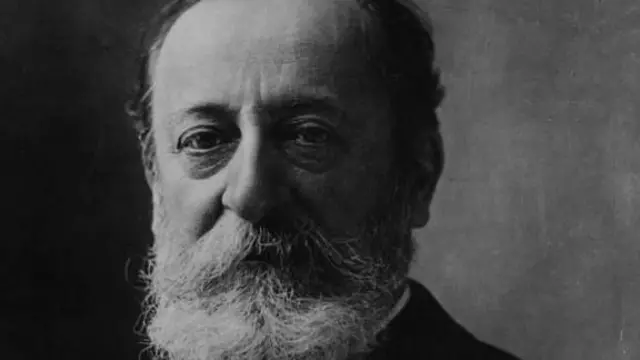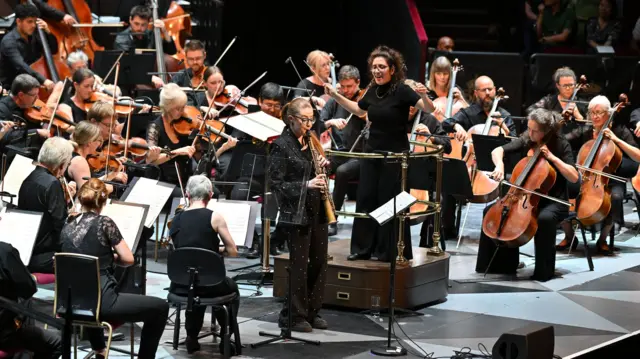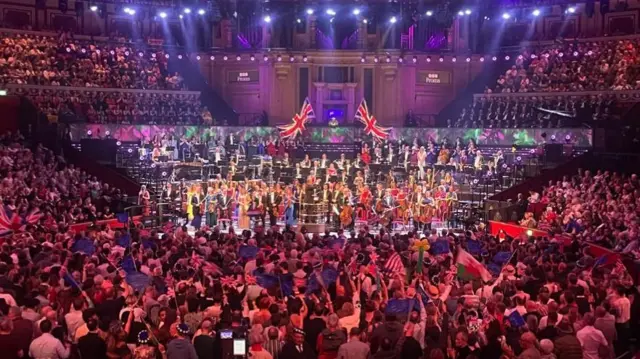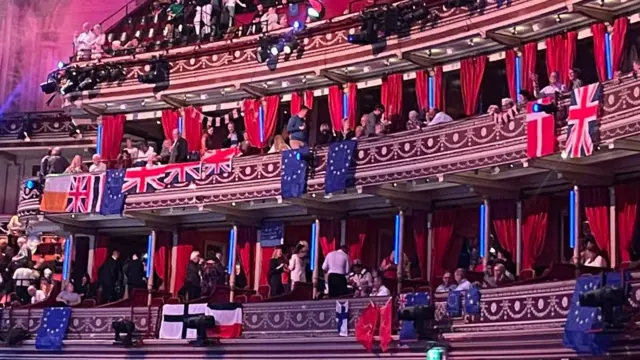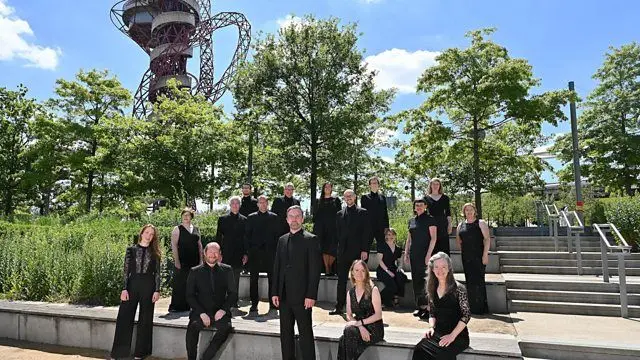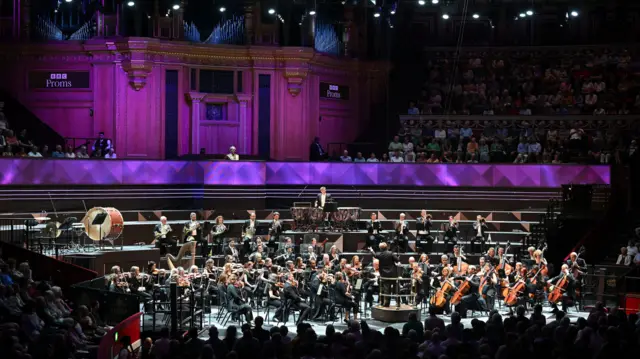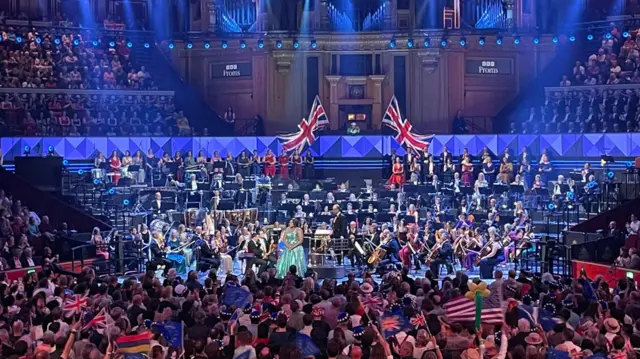A brand new composition by Iain Farringtonpublished at 21:08 BST 14 September 2024
 Mark Savage
Mark Savage
BBC Music correspondent
We return from the interval with a brand new composition – Extra Time, by Hitchin-born musician Iain Farrington.
Farrington is no stranger to the Proms, having previously written pieces including Wing It (2012), a jazz guide to the orchestra; and Beethoveniana (2020), inspired by Beethoven‘s nine symphonies.
This year, he’s been commissioned to write a piece that’s “a celebration of sports as well as famous sporting TV themes”.
Fingers crossed the percussionist gets to wallop the life out of a cowbell for the Test Match Special theme.

